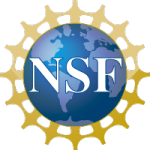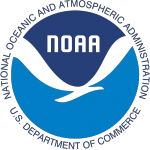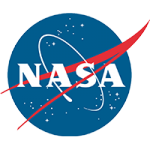The 2011 OCB Summer Science Workshop was held July 18-21, 2011 at the Woods Hole Oceanographic Institution in Woods Hole, MA.
1. Plenary Sessions
Monday, July 18, 2011
Trends, Thresholds, and Tipping Points in Marine Ecosystems
Session Chairs: Kendra Daly (USF), Jeremy Mathis (UAF)
The oceans represent one of the largest and most active carbon reservoirs on the planet. With atmospheric CO2 levels on the rise, there is serious concern about the physical, chemical, and biological impacts of continued oceanic uptake of anthropogenic CO2. When combined with other environmental stressors such as greenhouse warming, decreasing oxygen levels, pollution, etc., this carbon reservoir is particularly susceptible to rapid, nonlinear shifts in biogeochemistry, physical circulation, and biology that could fundamentally change the global carbon cycle as we know it. This session will explore past and future physical, chemical, and biological trends, thresholds, and tipping points and their implications for marine ecosystems.
Tuesday, July 19, 2011
Joint OCB and U.S. CLIVAR Session
Joint Organizing Committee: Annalisa Bracco (Georgia Tech), Kenneth Johnson (MBARI), Nick Bond (UW), Craig Carlson (UCSB), Jay McCreary (U Hawaii), Dimitris Menemenlis (NASA JPL), Mak Saito (WHOI), Rik Wanninkhof (NOAA/AOML)
For those who attended the 2010 OCB summer workshop (La Jolla, CA), you may remember an overview presentation (Dr. David Legler) on the U.S. Climate Variability and Predictability (CLIVAR) program. Given the overlapping scientific and observational interests of the two programs, one day of this year’s OCB summer workshop will be dedicated to a joint session with the U.S. CLIVAR Program. The goals of this joint session are to explore science issues of common interest and identify initial high-priority research topics that may lead to joint activities (e.g., the formation of focused working groups) between U.S. CLIVAR and OCB researchers over the next decade. Specific plenary topics are still being discussed by a joint planning committee of OCB and U.S. CLIVAR scientists, but they will collectively address the following motivating science questions:
- How do changes in the physical ocean circulation and heat content affect the magnitudes and distributions of ocean carbon sources and sinks on seasonal to centennial time scales?
- What are the coupled physical/biogeochemical processes and feedbacks that contribute to determining the future state of heat and carbon sources and sinks and ecosystem structure?
- What will be the future atmospheric concentrations of carbon dioxide, methane, and other carbon-containing greenhouse gases, and how will marine carbon sources and sinks change in response to anthropogenic forcing in the future?
Wednesday, July 20, 2011
Toward the Implementation of a Global Autonomous Biogeochemical Observing System
Session Chairs: Kenneth Johnson (MBARI), Mary Jane Perry (U. Maine)
The challenge of understanding the ocean’s role in the global carbon cycle and its response to a changing environment requires an expanded scale of observation in both space and time. Building on the momentum of the OCB scoping workshop “Observing Biogeochemical Cycles at Global Scales with Profiling Floats and Gliders“ in April 2009 (Moss Landing, CA), which summarized the state-of-the-art in autonomous sensors (Johnson et al., 2009), this session will progress toward the development of a detailed implementation strategy for a long-term global biogeochemical observing system using chemical and biological sensors deployed on autonomous platforms.
2. Agenda
Monday July 18, 2011
8:30 Introduction (Scott Doney, WHOI) (Recording: Quicktime, webm
8:40 Data management talk (Cyndy Chandler, BCO-DMO) (Recording: Quicktime, webm)
Trends, Thresholds, and Tipping Points in Marine Ecosystems
Chairs: Kendra Daly (USF), Jeremy Mathis (UAF)
9:00 Thinking about regime shifts in marine ecosystems (Brad deYoung, Memorial University) (Recording: Quicktime, webm)
9:30 Ocean Acidification: Should we view it as a trend, threshold or tipping point? (Ben McNeil, University of South Wales) PowerPoint and Video not available
10:00 Is Arctic sea ice approaching a tipping point? (Ian Eisenman, Caltech/UW) PowerPoint and Video not available
11:00 Past and future regime shifts in the North Pacific from physical and biochemical perspectives (Nicholas Bond, UW/JISAO) (Recording: Quicktime, webm)
11:30 Questions and discussion (Part 1 recording: Quicktime, webm; Part 2 recording: Quicktime, webm)
14:00 Deepwater Horizon Oil Spill Update (Chris Reddy, WHOI) (Recording: Quicktime, webm)
14:30 Questions and discussion (Recording: Quicktime, webm)
- Kendra Daly, University of South Florida (Recording: Quicktime, webm)
- Tom Bianchi, Texas A&M University (Recording: Quicktime, webm)
- Boris Wawrick, University of Oklahoma (Recording: Quicktime, webm)
15:00 Student presentations (5 mins. each)
16:00 Poster session and reception
Tuesday July 19, 2011
OCB and US CLIVAR: A Joint Science Session
Chairs: Ken Johnson (MBARI), Annalisa Bracco (Georgia Tech)
8:00 Meeting introduction, mutual goals, anticipated outcomes (Annalisa Bracco, Georgia Tech) (Recording: Quicktime, webm)
8:20 OCB and U.S. CLIVAR: Scientific questions and global observing capabilities (40 mins. talk) (Scott Doney, WHOI) (Recording: Quicktime, webm)
9:00 Joint OCB and U.S. CLIVAR science and observing objectives (45 mins. community discussion) (Recording: Quicktime, webm)
10:15 Global modeling challenges (30 mins. talk, 30 mins. community discussion) (Mick Follows, MIT) (Recording: Quicktime, webm)
11:15 Impacts of overturn on ocean heat and carbon fluxes and ecosystem processes (30 mins. talk, 30 mins. community discussion) (Alison Macdonald, WHOI) (Recording: Quicktime, webm)
13:45 Southern Ocean challenges: How do climate variability and climate change impact circulation, carbon uptake, and ecosystem processes? (30 mins. talk, 30 mins. community discussion) (Nicole Lovenduski, Univ. Colorado)
14:45 Coupled air-sea interaction, heat and gas exchange contributing to variability and trends in ocean biogeochemistry (e.g. carbon sources and oxygen minimum zones) (30 mins. talk, 30 mins. community discussion) (Curtis Deutsch, UCLA) (Recording: Quicktime, webm)
16:15 Sub-daily to seasonal and sub-mesoscale to mesoscale processes and interaction with ocean biology (30 mins. talk, 30 mins. community discussion) (Amala Mahadevan, WHOI) (Recording: Quicktime, webm)
17:15 Wrap-up remarks
17:30 Poster session
18:30 Workshop dinner (Fenno lawn)
Wednesday July 20, 2011
Toward the Implementation of a Global Autonomous Biogeochemical Observing System
Chairs: Kenneth Johnson (MBARI), Mary Jane Perry (U Maine)
8:30 Introduction, overview, and brief history of activities related to autonomous observing for biogeochemistry (Mary Jane Perry, U Maine)
8:45 Vision for understanding the ocean with a global sensor network (Kenneth Johnson, MBARI) (Recording: Quicktime, webm)
9:15 Potential benefits of synthesizing autonomous network data with models (Stephanie Dutkiewicz, MIT) (Recording: Quicktime, webm)
9:45 Data quality requirements – oxygen minimum zone example (Jorge Sarmiento, Princeton)
10:45 Questions and community discussion (Recording: Quicktime, webm)
11:30 Sensor calibration and data quality (O2 example) (Todd Martz, Scripps) (Recording: Quicktime, webm)
12:00 Strategy for cross-calibration of autonomous sensors (Craig Lee, U Washington) Part 1 (Recording: Quicktime, webm) Part 2 (Recording: Quicktime, webm)
14:00 International activities (Hervé Claustre, Laboratoire d’Océanographie de Villefranche) (Recording: Quicktime, webm)
14:30 Implementation and community involvement (Recording: Quicktime, webm)
Open discussion moderated by Johnson and Perry (Recording: Quicktime, webm)
16:00 Poster session
Thursday July 21, 2011
8:30 Agency updates
- NSF (David Garrison, Donald Rice) (Garrison recording: Quicktime, webm; Rice recording: Quicktime, webm)
- NASA (Paula Bontempi) (Recording: Quicktime, webm)
9:15 OCB scoping workshop report: A Biogeochemical Flux program aligned with the Ocean Observatories Initiative (Susumo Honjo, WHOI) (Recording: Quicktime, webm)
9:45 Update on joint OCB/NACP coastal synthesis activities (Jeremy Mathis, UAF) (Recording: Quicktime, webm)
10:45 RECCAP (Regional Carbon Cycle Assessment and Processes) workshop report (Galen McKinley, Univ. of Wisconsin) (Recording: Quicktime, webm)
11:05 IOCCP activities update (Kathy Tedesco, UNESCO) (Recording: Quicktime, webm)
11:15 OCB implementation: Looking beyond scoping (open discussion moderated by Doney) (Recording: Quicktime, webm)
11:50 Closing remarks and wrap-up (Scott Doney, WHOI) (Recording: Quicktime, webm)
13:30 OCB Scientific Steering Committee (SSC) meeting (OCB SSC members and agency representatives only)
3. Poster Information
Poster Sessions
- Development of a Global Autonomous Biogeochemical Observing System
- Intersection between OCB and CLIVAR
- Ocean Trends and Tipping Points
2011 OCB Workshop Poster Abstracts
4. Participant Information
2011 OCB Workshop Participant List
2011 Workshop Sponsors






